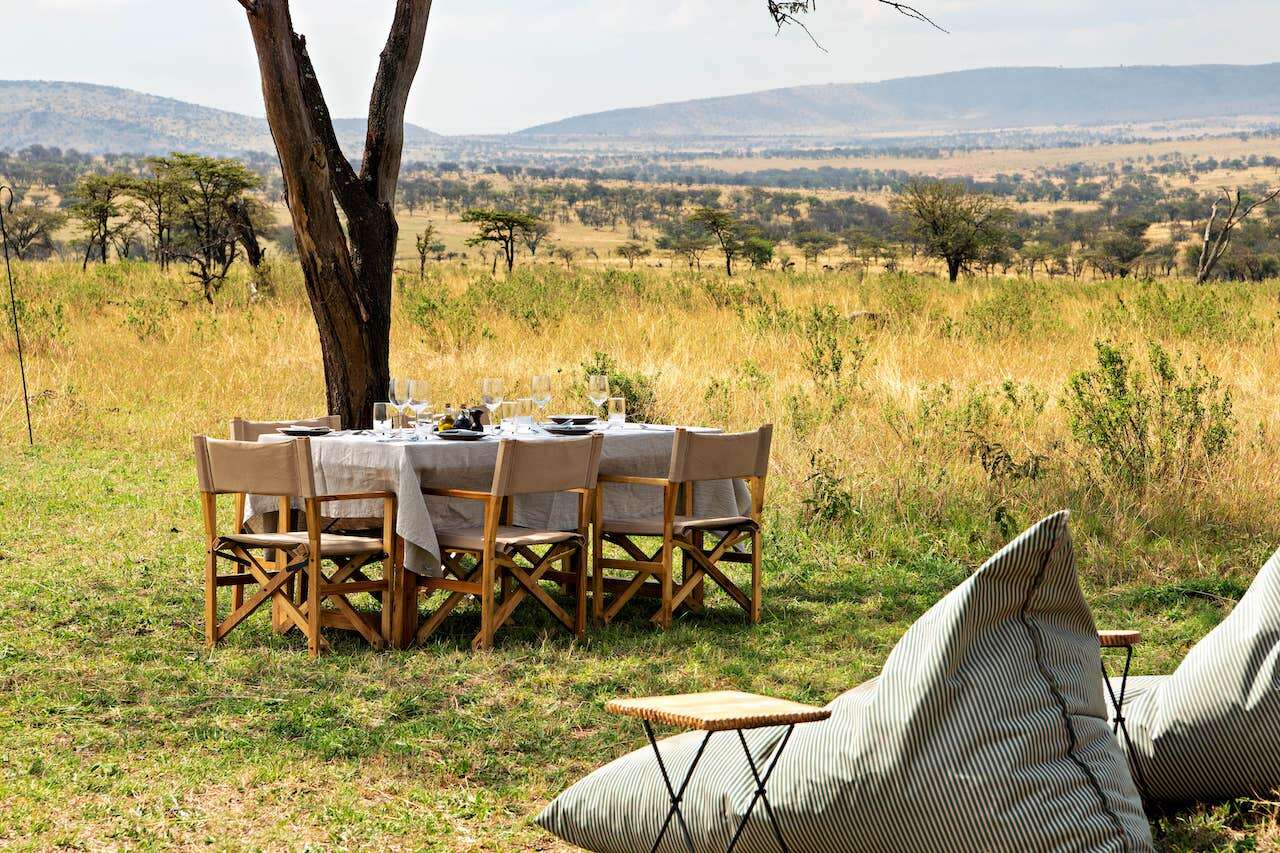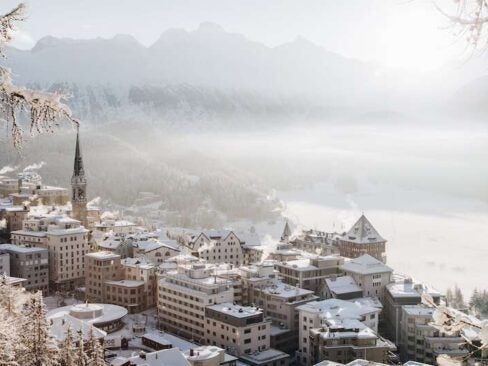“They killed it here”– the Afrikaans lilt floats softly through the Serengeti sunshine. We’re 20 ft away, examining the latest drama of death and survival in the world’s most revered national park; the carcass of a wildebeest, brought down by lions the night before, springing out of the darkness with a feral ferocity and the inevitability of death itself. It’s already been picked bone-white clean by hyenas.
Jean du Plessis (the name derives from Huguenot antecedents arriving in South Africa centuries earlier) stands over in the yellowy-green grass, now daubed a bright and fresh-looking red, flattened down as if the scene of a recent picnic, which in a way it was. Just not the potato salad kind. Killed there, dragged here, and another skeleton added to the many scattered across the savannah like pebbledash, in a constant reminder that this is where predator and prey have conducted their business for millennia.
We’re out on a morning walk from Usawa, the newly debuted mobile camp of upscale safari operator, Wilderness, for whom du Plessis is regional director. A pioneer of walking safaris, he likes, wherever possible, to clamber out of the ubiquitous 4WDs and into the wild.
Getting up close and personal with the kind of creatures responsible for the extremely “ex” wildebeest at our feet, however, requires a rare degree of knowledge, skill, and experience. So, we also have Chris, long-term Tanzanian colleague of Jean, carrying a large-caliber rifle capable of stopping a recalcitrant rhino in its tracks, and a Serengeti ranger, looking like he’s straight out of special ops, brandishing an AK47.
[See also: See Sossusvlei from Above with Namib Sky Balloon Safaris]
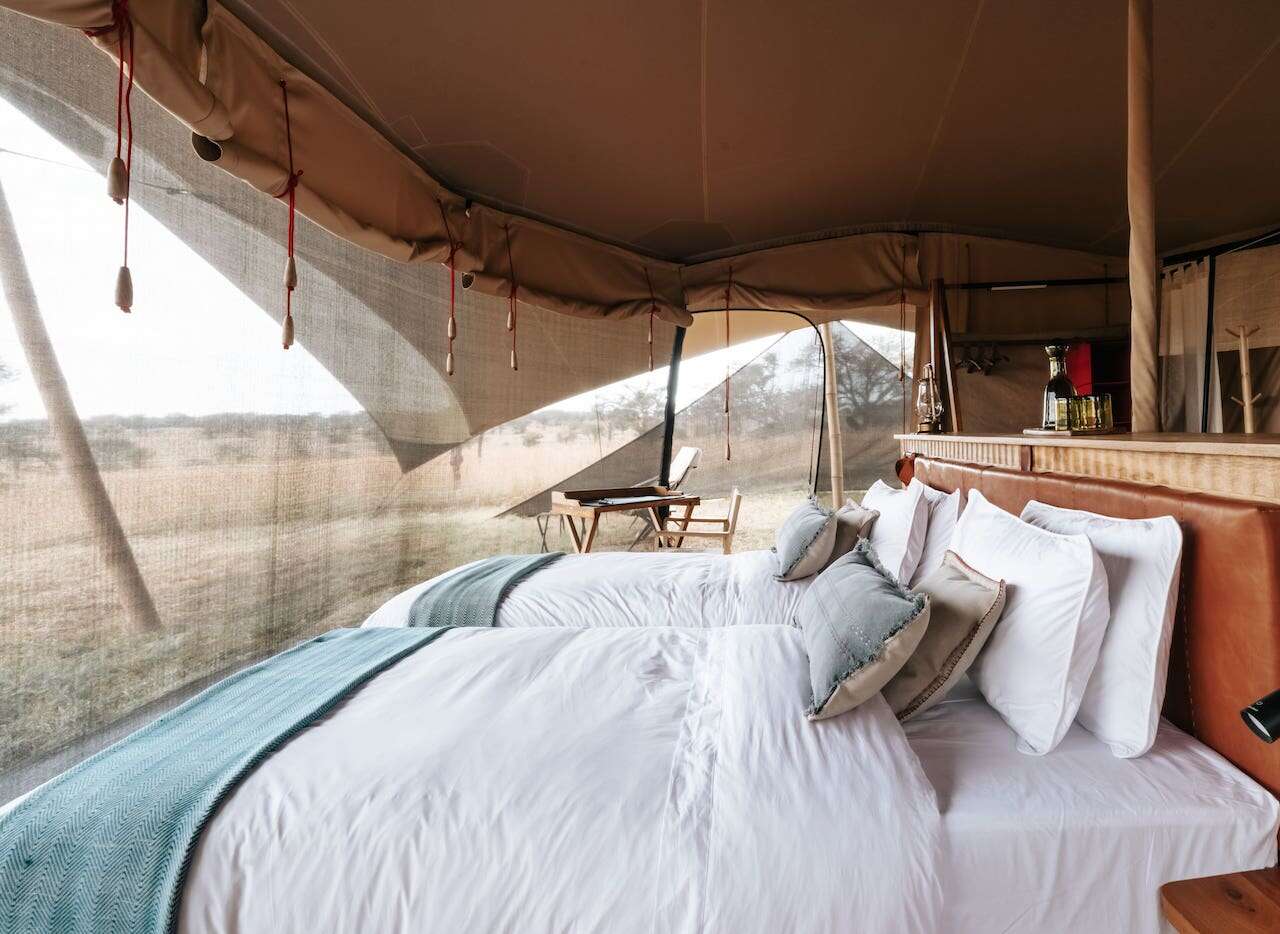
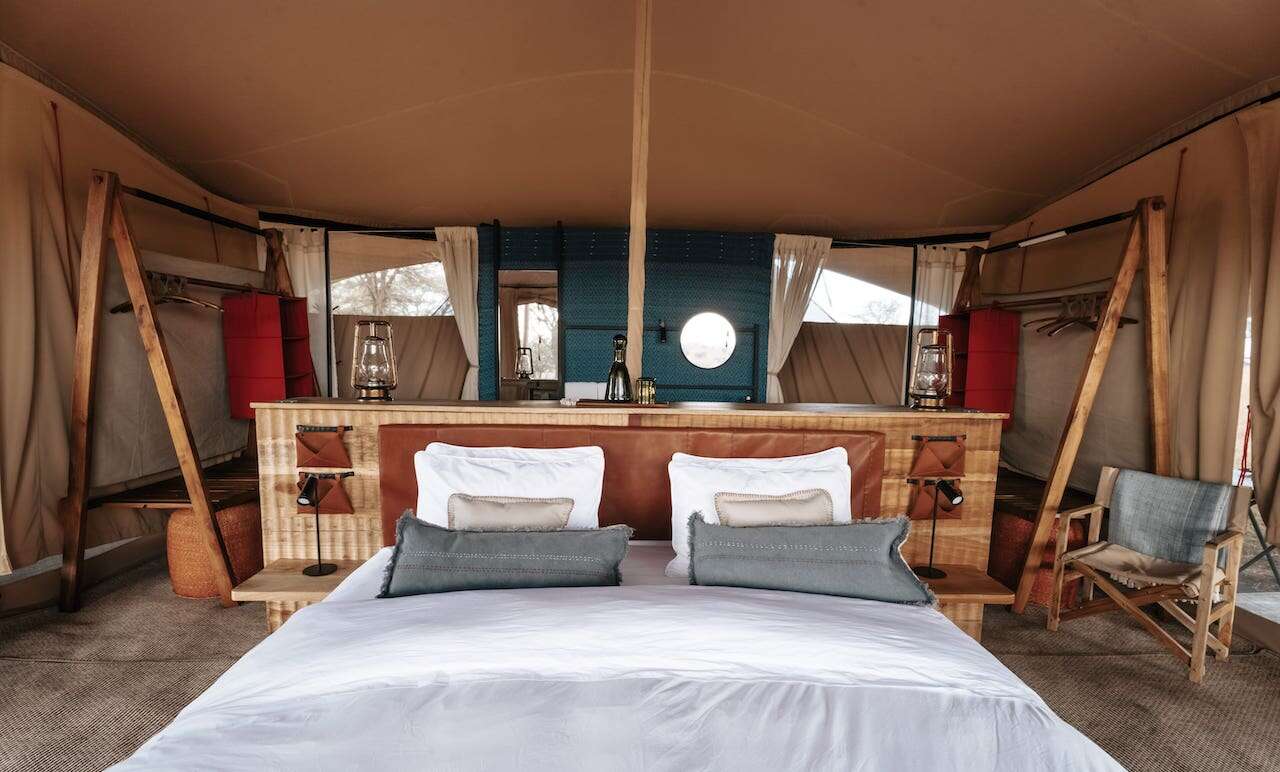
Encapsulating a luxury experience within this sublime slice of unadulterated raw nature is a tall order that du Plessis, who’s spent 27 of his 49 years here, chaperoned A-list celebrities, and featured in documentaries, fills with ease.
Six tents accommodating 12 guests surround a central tent for socializing and dining where barbecues and campfires are carefully choreographed. Underneath the canvas, it’s all “Out of Africa” and in with an understated, ultra-stylish safari-chic, boasting flushing toilets, hot showers, and sprawling sumptuous beds with discreetly hidden hot water bottles. There’s even WiFi. It even works.
Usawa, meaning ‘balance’ in Swahili, referencing the ecological balance of the Serengeti, is a solar-powered mobile camp, designed to leave no trace on the landscape. Serving up a refined experience yet retaining the ability to change locations quickly, as big game hunters did a century before, facilitates agile access to Tanzania’s principal attraction – the Great Migration.
The largest overland migration of animals on earth, two million of them, predominantly wildebeest, follows the rains in a never-ending 1,200-mile odyssey, whilst predators wait to pick off prey with relative ease.
[See also: Wilderness Safaris Reveals Reimagined Vumbura Plains Camp]
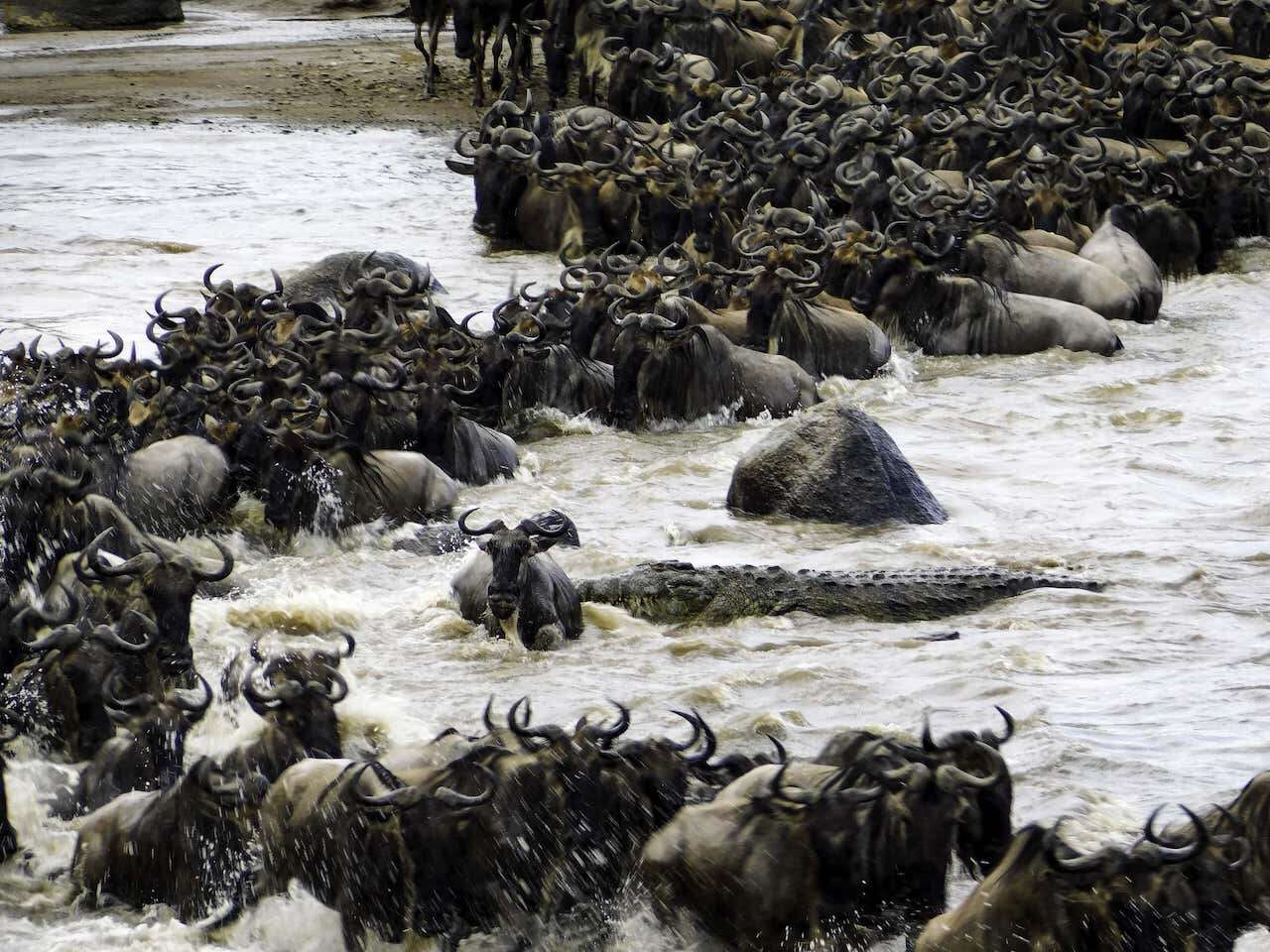
We’d arrived at an airstrip from Arusha, the bustling town on the edge of the Serengeti, a mustering point for humans as they ready themselves for the animals. A night cossetted within the polished-wood charm of Arusha’s Legendary Lodge, a coffee plantation with open fires and sublime tropical gardens, delivers the requisite respite from the international flight.
We’re soon alongside the Mara River, site of “the crossings”, where wildebeest gather in huge numbers, gauging the brief but deadly trajectory from one bank to the other, as vultures congregate, and crocodiles secrete themselves into the mud with murder in mind.
A large group of wildebeest on the opposite bank meander back and forth in nervous procrastination waiting for a courageous hero to leap into the perilous waters, after which, the others all follow. Occasionally one leads down to the water’s edge, but the prospect of becoming dish of the day at Croc’s Café reverberates through the collective consciousness like a crack of lightning and they scramble frantically back.
We eventually leave them to it, along with the 4WDs corralled into an equally excitable grouping on our side of the river and head off deeper and deeper into an altogether more sedate Serengeti. One where a timeless tableau of sun-strafed, dream-like scenery stretches to infinity and beyond.
[See also: The Most Immersive Safari Suites in the World]
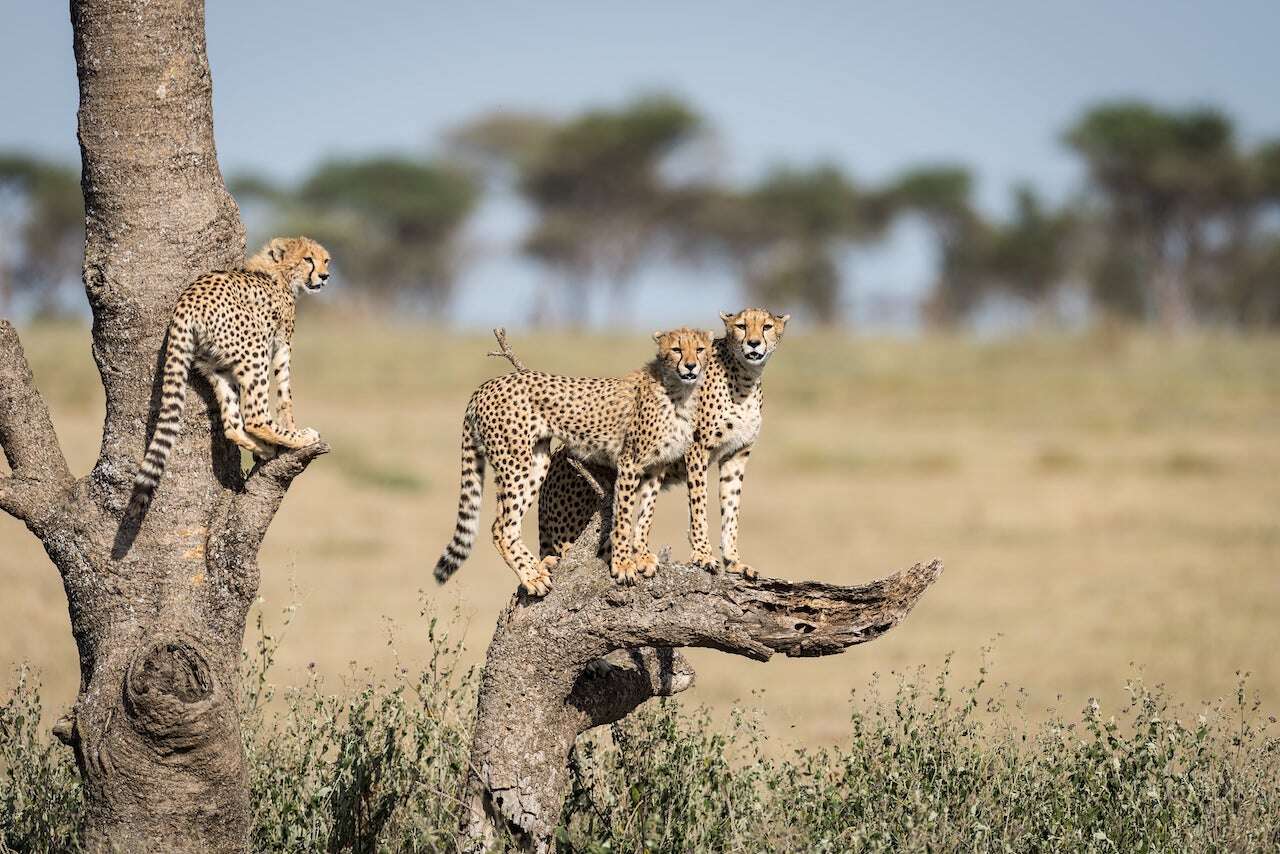
Chris’s laser-like gaze leads us to a pride of lions sound asleep in a hollow, piled atop each other like exhausted outlaws that finally outran the posse. A cheetah, of which there are only around 250 left in the Serengeti, lounging under a tree with her two cubs, raises up her pretty little head, ears twitching like a domestic cat in front of the fireplace, before strutting right in front of us with the haughty indifference of a model ambling down a Milan catwalk. The cubs scamper excitedly on behind. Mamma scours the horizon for supper.
A herd of elephants meanders across a never-ending valley, totally indifferent to our presence. With nothing but the sound of grass relentlessly tugged from the ground, we’re suddenly ensconced somewhere between Shangri-La and Jurassic Park.
Giraffes, equally dedicated to the business of hoovering up, with their huge tongues, the bounty atop the acacia trees that proliferate the landscape, also share their world with nobody but us. Hunting is still permitted here, though not for Tanzania’s national animal. The giraffe’s towering, other-worldly beauty is quite safe, at least from the legal hunters.
From a hippo (they can be active at night) caught in our headlights, prancing around on dainty feet like a gigantic, illuminated Miss Piggy, to the hyenas appearing the second our vehicle became stuck in the mud, these daily game drives deliver up the keys to Africa’s amazing animal kingdom.
[See also: First Look at Wilderness’ New Botswana Camp]
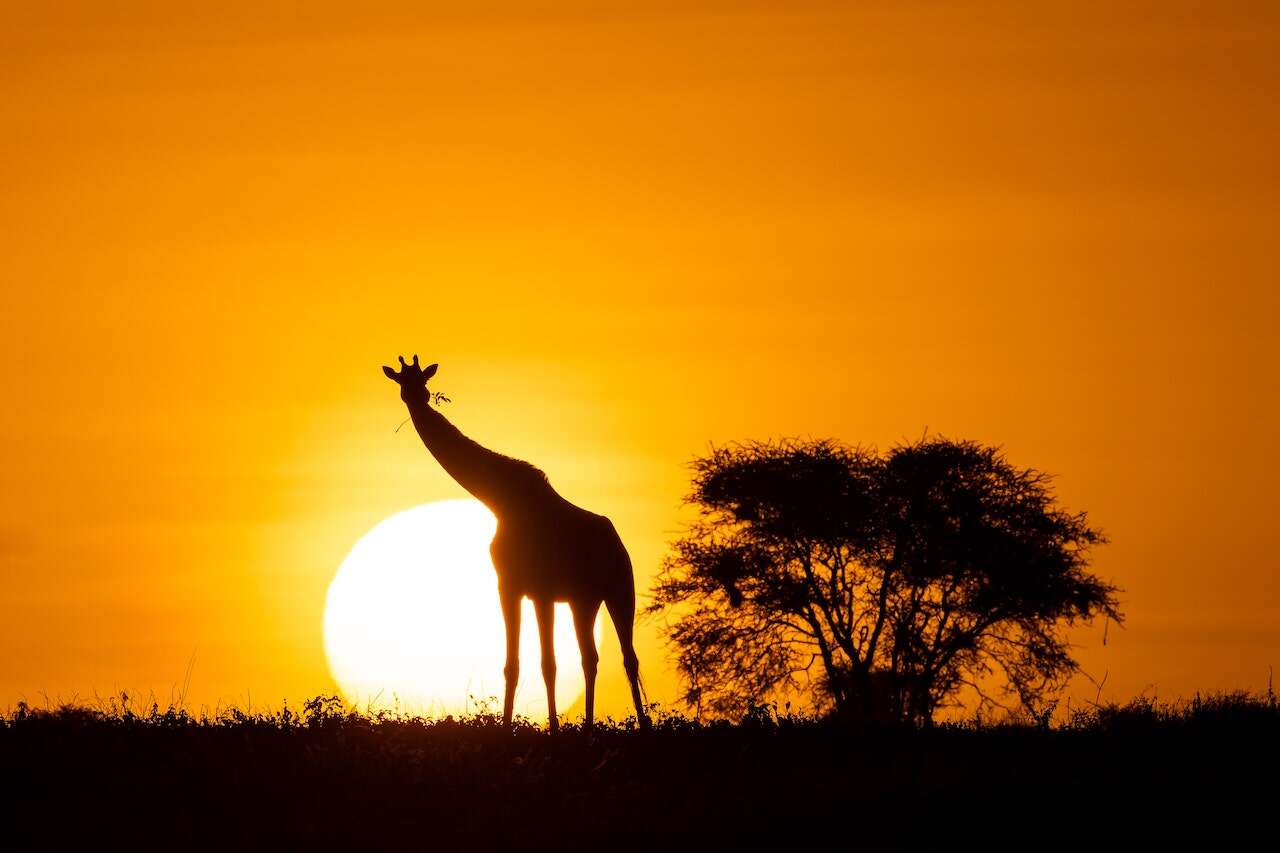
Earlier, Chris had been explaining the differing killing strategies of lions and hyenas. While the king of the jungle grabs its prey around the throat and suffocates it mercifully quickly, hyenas subject their targets to a more scatological and savage ordeal.
He recalled them ripping an escaping wildebeest’s stomach wide open, looking down in terror at its own depleting list of body parts as the chasing hyenas tore chunks off it. They watch us from the nearby woods, heads bobbing about in the darkness like a surreal puppet show. Vicious they might be, but they’re not brave, and we’re soon out of the mud and away.
Hidden fingers are delicately drumming across my forehead as the tendrils of sunlight creeping through the tent flaps coax me toward consciousness. I’ve become accustomed to opening those flaps and being transfixed by a vast undulating spectacle of extraordinary beauty.
But the drumming’s still there as the opened flaps unveil hundreds of wildebeest surging past in front of me as if suddenly tuned into a widescreen wildlife channel. East Africa’s most prodigious species isn’t its most beautiful. With long ugly heads, like masks from a satanic ritual, and huge shoulders tapering down to tiny hindquarters, it’s as if wildebeest were grafted together using surplus species to avoid wastage. Wake-up calls don’t come much weirder…. nor more wonderful.
[See also: Elite Traveler Reveals Top Adventures in the World]
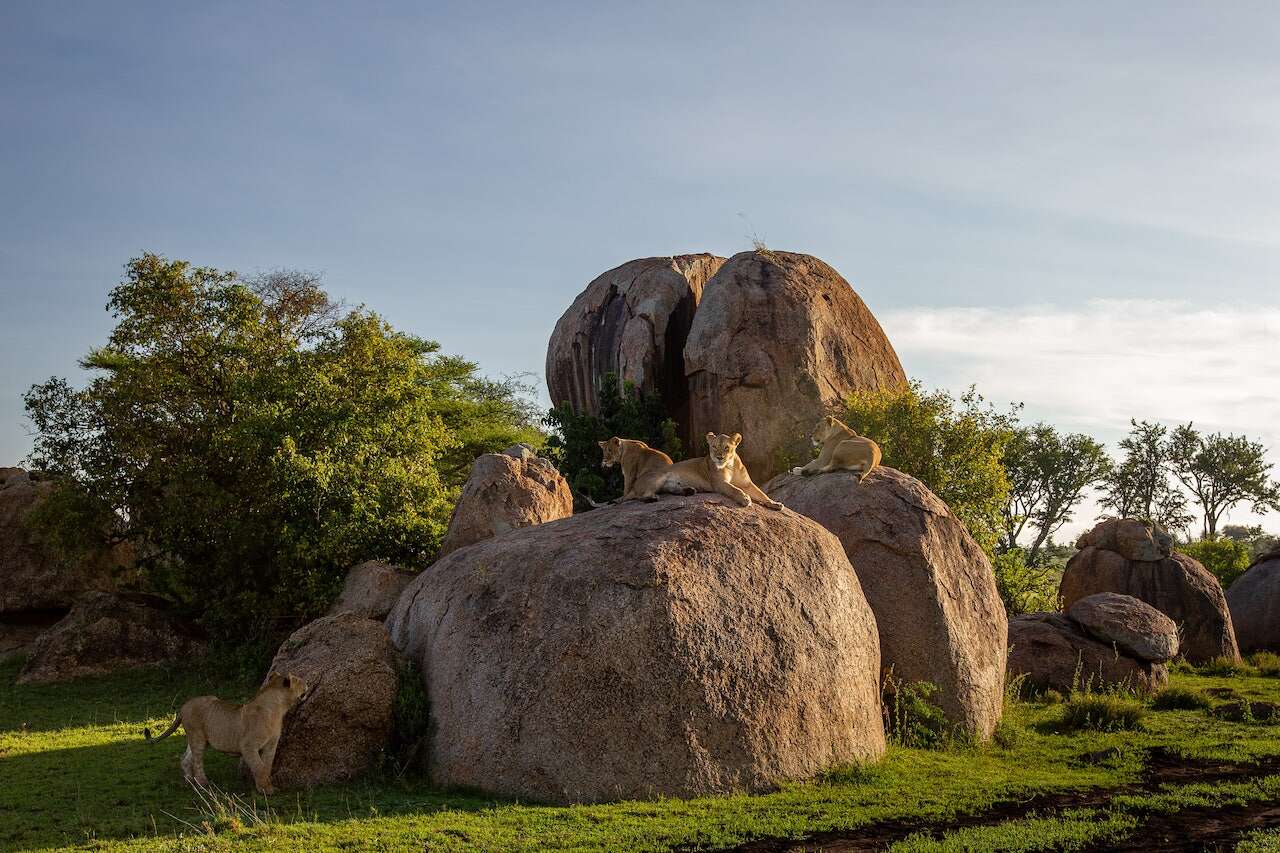
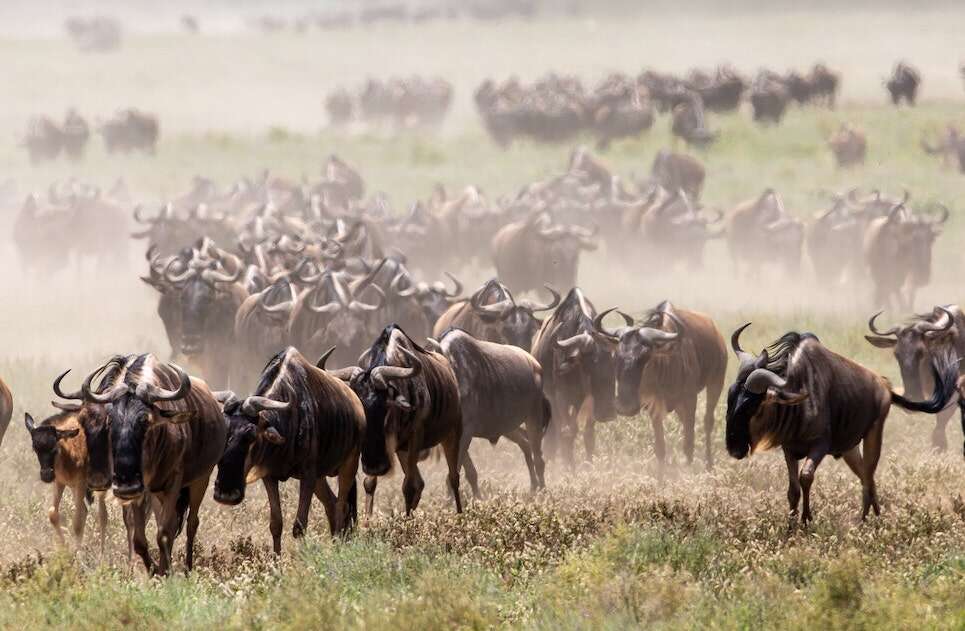
With heavily armed hikes and impromptu wildebeest stampedes, Usawa immerses guests into the beautiful beating heart of the Serengeti, including at night, where animals can be heard snorting around. One guest became convinced lions were around his tent, probably after du Plessis, around the campfire, had identified a lion in the distance. But a lion can be heard five miles away, and this was undoubtedly wildebeest or zebra whose diet is grass, not tourists. Although, I have to confess, I never did venture too far away from the hot water bottle.
East African safaris invariably conclude with downtime on the coast, and in two hours from the same landing strip, we’re on the semi-autonomous island of Zanzibar, enveloped into the lush serenity of the delightful French family-owned, White Sand Villas, the only Relais & Chateaux property in Tanzania. Together with Legendary Lodge, both properties provided a perfectly bookended beginning and end to the wild, wonderful, if not occasionally exhausting exuberance of the Serengeti.
On our final afternoon, we’re driven off-road, eventually emerging onto yet another far-reaching vantage point of improbable perfection. Along a nearby ridge, a line of umbrella thorn trees (supposedly the wood used for the ark of the covenant) are silhouetted against the setting sun like Javanese shadow puppets, as a tumultuous torment of rain clouds dances menacingly in the distance.
Tables are waiting, behind which are the familiar faces of our effusively friendly staff from the camp, proffering sundowners. As we succumb to the mesmerizing magnificence of it all, du Plessis explains how the word the Masai use for what’s laid out in front of us, Siringet, translates as; “the place where the land runs on forever”. It needs no explanation. Nor does his apparent decision to live in it forever.
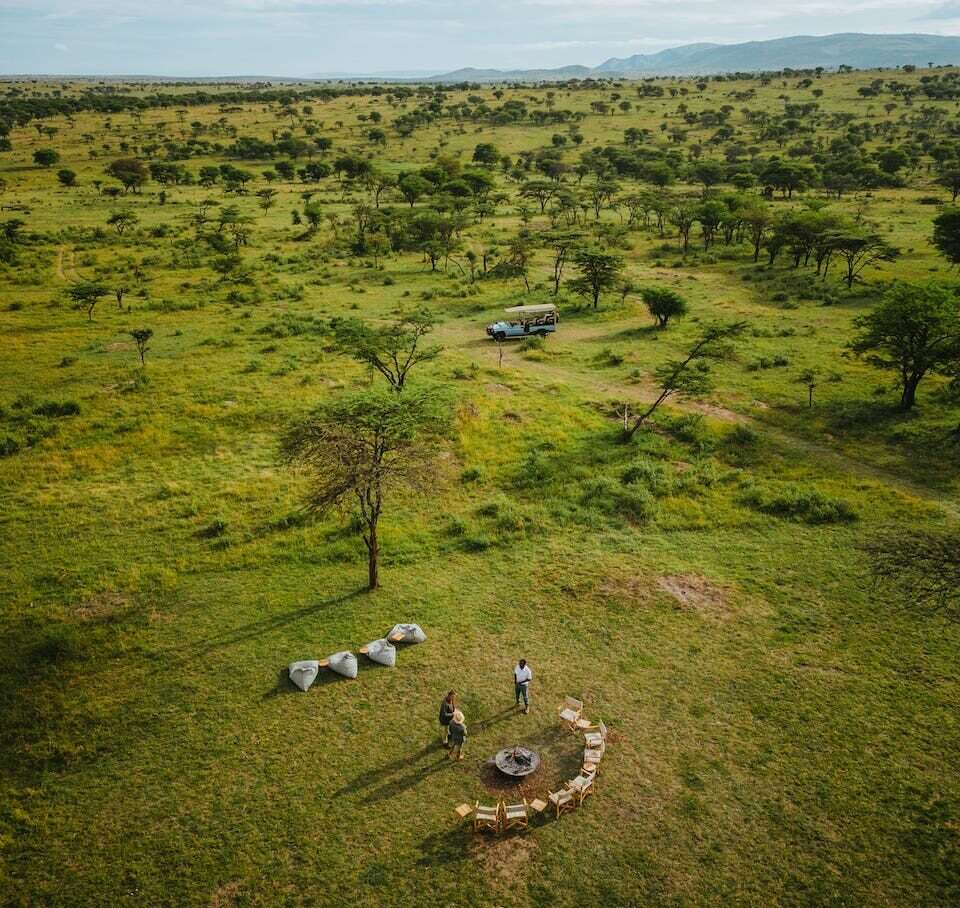
Wilderness Usawa Serengeti from $10,131 per person sharing inclusive of one night at Legendary Lodge in Arusha, three nights with Wilderness Usawa Serengeti and two nights at Zanzibar White Sand





